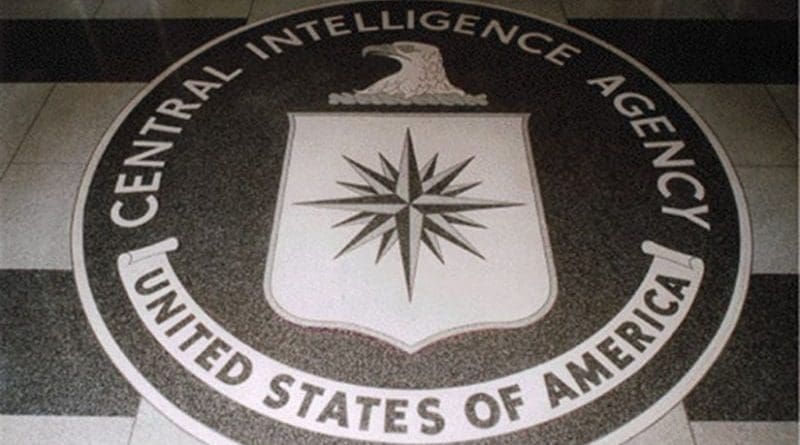CIA Wants To Expand Campaign To Kill Men With Guns And Beards – OpEd
By Paul Woodward - War in Context
In one of the first reports on the Obama administration’s use of so-called “signature strikes,” this is how they were described in the Wall Street Journal: “Signature strikes target groups of men believed to be militants associated with terrorist groups, but whose identities aren’t always known. The bulk of CIA’s drone strikes are signature strikes.”
To say men “whose identities aren’t always known,” sounds like the manicured language government officials always favor and journalists gladly regurgitate. Probably much more accurate would be to say men whose identities are almost always unknown.
Presidential authorization is not sought for such attacks — how indeed could such a request be couched? “We spotted a bunch of guys with beards and guns. Can we kill them?” The White House is only informed after the “fact” — that x number of “terrorists” were eliminated in a drone strike. The coordinates of the location of the attack are most likely the only indisputable facts in these cases.
“Roger”, chief of the CIA’s Counterterrorism Center, who has been the driving force behind the escalation of these attacks and whose relentless approach is said to have meshed with President Obama’s mindset, gives this assessment of the scope of the campaign: “There is no end in sight.”
The massive expansion of remote warfare may turn out to be among the most lasting legacy of a president who once declared that he didn’t just want to end the war in Iraq but also end the mindset that took us to war.
The Washington Post reports: The CIA is seeking authority to expand its covert drone campaign in Yemen by launching strikes against terrorism suspects even when it does not know the identities of those who could be killed, U.S. officials said.
Securing permission to use these “signature strikes” would allow the agency to hit targets based solely on intelligence indicating patterns of suspicious behavior, such as imagery showing militants gathering at known al-Qaeda compounds or unloading explosives.
The practice has been a core element of the CIA’s drone program in Pakistan for several years. CIA Director David H. Petraeus has requested permission to use the tactic against the al-Qaeda affiliate in Yemen, which has emerged as the most pressing terrorism threat to the United States, officials said.
If approved, the change would probably accelerate a campaign of U.S. airstrikes in Yemen that is already on a record pace, with at least eight attacks in the past four months.
For President Obama, an endorsement of signature strikes would mean a significant, and potentially risky, policy shift. The administration has placed tight limits on drone operations in Yemen to avoid being drawn into an often murky regional conflict and risk turning militants with local agendas into al-Qaeda recruits.
A senior administration official, who like others spoke on the condition of anonymity to discuss sensitive internal deliberations, declined to talk about what he described as U.S. “tactics” in Yemen, but he said that “there is still a very firm emphasis on being surgical and targeting only those who have a direct interest in attacking the United States.”
U.S. officials acknowledge that the standard has not always been upheld. Last year, a U.S. drone strike inadvertently killed the American son of al-Qaeda leader Anwar al-Awlaki. The teenager had never been accused of terrorist activity and was killed in a strike aimed at other militants.
Some U.S. officials have voiced concern that such incidents could become more frequent if the CIA is given the authority to use signature strikes.
“How discriminating can they be?” asked a senior U.S. official familiar with the proposal. Al-Qaeda’s affiliate in Yemen “is joined at the hip” with a local insurgency whose main goal is to oust the country’s government, the official said. “I think there is the potential that we would be perceived as taking sides in a civil war.”
There is however one dimension of this new era that has yet to unfold: a new kind of blowback that is surely inevitable.
Drones might have become the weapon of choice for “taking out” terrorists, but sooner or later they are destined to become deadly tools of terrorism.
A few months ago, Al Jazeera had a show on drones in which the presenter and a producer demonstrated how easy small drones are to operate — though in the process they accidentally landed one on the roof of a federal building!
Josh Rushing, a former U.S. Marines captain and now AJ host, noted some of the implications about the location in Washington DC where the show’s producers were able to fly this small commercial drone:
Imagine the threat that this poses. If you look out of the window… we’re about two or three blocks from the US Capitol, about five, six blocks from the White House that way. So you’re right between the White House and the Capitol building. This has to be some of the most restricted airspace in the entire world and yet you were able to go out and fly this [drone] around without F-16s scrambling overhead.
Drones might currently frequently be deployed to target suspected terrorists, but it’s easy to imagine that a drone of the kind Al Jazeera flew could, with relatively minor adaptations, be modified into a remote-controlled weapon of assassination or a dirty bomb. Come that day, no one will be able to seriously claim, we could never have imagined this happening.

